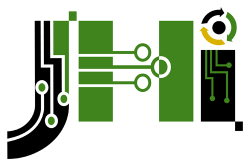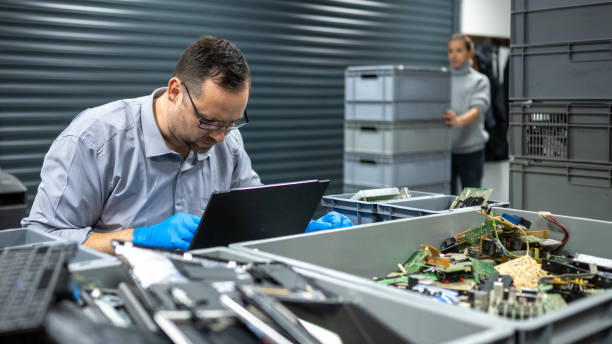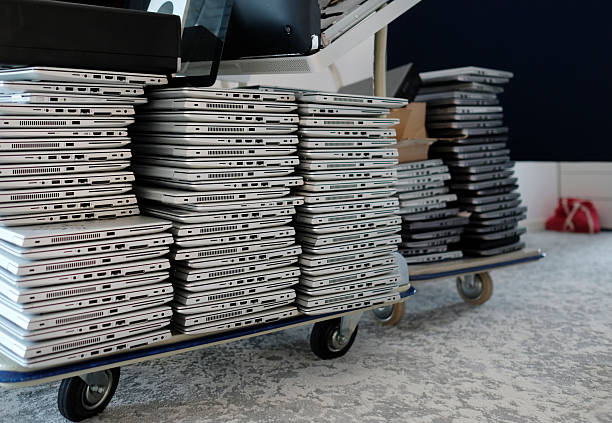
At Jay Hoehl Inc., we handle and recycle thousands of electronic components daily. Understanding SMD parts helps us and our clients make better decisions about IT asset recovery, reuse, and e-waste recycling.
What Does SMD Stand For?
SMD stands for Surface-Mount Device. Unlike through-hole components that require drilled holes in a PCB, SMD components are soldered directly onto the board’s surface. This design allows for:
- Higher component density
- Faster assembly
- Smaller, more lightweight electronics
SMDs are found in everything from smartphones and laptops to medical devices and industrial electronics.
 Common Types of SMD Components
Common Types of SMD Components
- SMD Resistors
These limit electrical current and are identified by a three- or four-digit code on the component.
- SMD Capacitors
Used for storing and releasing energy. Ceramic and tantalum capacitors are the most common types.
- SMD Inductors
These manage magnetic fields in circuits, often used in filters and power supply modules.
- SMD Diodes and LEDs
Diodes control the direction of current, while LEDs emit light. Both are essential for energy efficiency and device signaling.
- SMD Transistors
These are the core of logic circuits, amplifying signals or switching currents.
- SMD Integrated Circuits (ICs)
ICs house complex circuits within a single chip. They’re often the most valuable component on a PCB.
SMD vs. Through-Hole Components
| Feature | SMD | Through-Hole |
| Mounting | Surface | Drilled holes |
| Size | Small | Large |
| Assembly | Automated | Manual/Semi-auto |
| Repair | More difficult | Easier |
| Common Use | Phones, computers, compact tech | Power electronics, industrial devices |
For electronics recyclers like Jay Hoehl Inc., SMD components can offer greater value in recovery due to their prevalence in high-density circuit boards.
How Jay Hoehl Inc. Handles SMD Components
As part of our IT Asset Disposition (ITAD) services, our team regularly:
- Identifies and evaluates valuable SMD components
- Safely removes and tests for reuse
- Recycles circuit boards in compliance with e-waste regulations
We also ensure secure data destruction and offer environmentally responsible disposal of all tech components.
Learn more about our e-waste recycling services and how we support corporate ITAD programs.
 Why SMD Knowledge Matters in Electronics Recycling
Why SMD Knowledge Matters in Electronics Recycling
Knowing how to identify and handle SMD components is vital when processing high-value electronics. It helps maximize recovery, reduce waste, and lower costs for businesses.
At Jay Hoehl Inc., we combine expert knowledge with best-in-class recycling practices to help companies get the most from their retired technology.
SMD components are everywhere—from tiny resistors to complex ICs—and they power nearly every piece of modern tech. Whether you’re repairing a circuit board or recycling obsolete electronics, knowing your SMDs helps you make smarter, more sustainable choices.
Looking for secure, certified e-waste disposal or ITAD services? Contact Jay Hoehl Inc. today to learn how we can support your organization’s environmental and compliance goals.

 Common Types of SMD Components
Common Types of SMD Components Why SMD Knowledge Matters in Electronics Recycling
Why SMD Knowledge Matters in Electronics Recycling